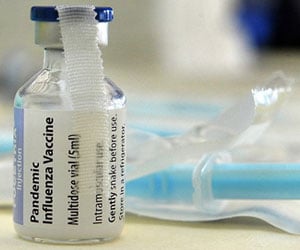
‘Tapping into the p73 gene, responsible for regularly cleaning our airways from inhaled pollutants, pathogens and dust, could be crucial for the treatment of lung diseases.’
Tweet it Now
The study, led by Professor Ute M. Moll, and research scientist Alice Nemajerova, from the Department of Pathology at Stony Brook University School of Medicine, unexpectedly identified the p73 gene, a cousin of the p53 tumor suppressor gene, to regulate proper function of airway epithelium in mice and likely also in humans. Airways are lined by a specialized barrier epithelium containing about 50 percent multiciliated cells (MCCs). These MCCs feature hundreds of long cilia at their cell surface. Each cilium is a complex nanomachine and together they beat vigorously and synchronously to create a directional conveyor belt that transports inhaled noxious particles back up to mouth and nose, thereby vitally protecting the gas exchanging surfaces of the lung. Dr. Moll and colleagues identified p73 to be the genetic "master switch" for the specific production of cilia in precursor cells destined to become MCC cells.
In the paper entitled "TAp73 is a central transcriptional regulator of airway muticiliogenesis," Dr. Moll and colleagues found that gene-engineered mice that lacked either the entire p73 gene or the version of the gene called TAp73 suffered from chronic respiratory tract infections due to profound defects in ciliogenesis and complete loss of mucociliary clearance.
"Prior to our work, the genes that govern multiciliogenesis remained poorly understood," said Dr. Moll. "We found that p73 sits at the top of a hierarchy and directly turns on more than 50 other key genes that control the architecture and movement of cilia. This breakthrough in our understanding of p73's essential role in multiciliogenesis helps to greatly increase our knowledge of this process, which is so central to respiratory health."
Since their genomic data implies the same pathway in humans, Dr. Moll emphasized that their finding opens the door for large-scale population-based studies of people with chronic lung disease to look for defects in p73-controlled airway function. She added that the data will also help power studies to prophylactically identify healthy persons at risk who carry a defective p73 gene and live in a polluted environment. Moreover, correcting for defective p73 function may be a promising therapeutic strategy for future treatments of COPD-related lung diseases.
Advertisement
Source-Newswise










